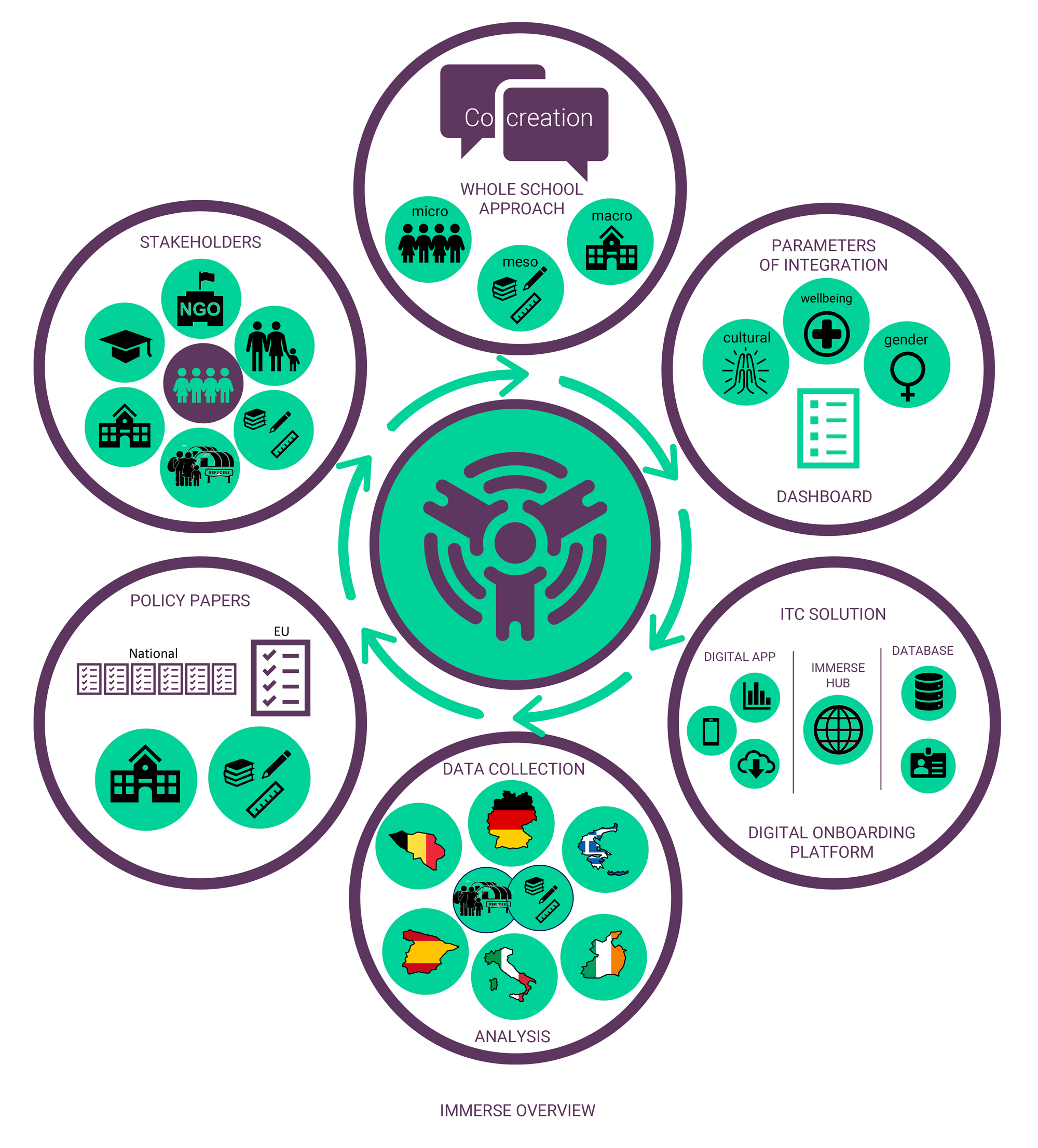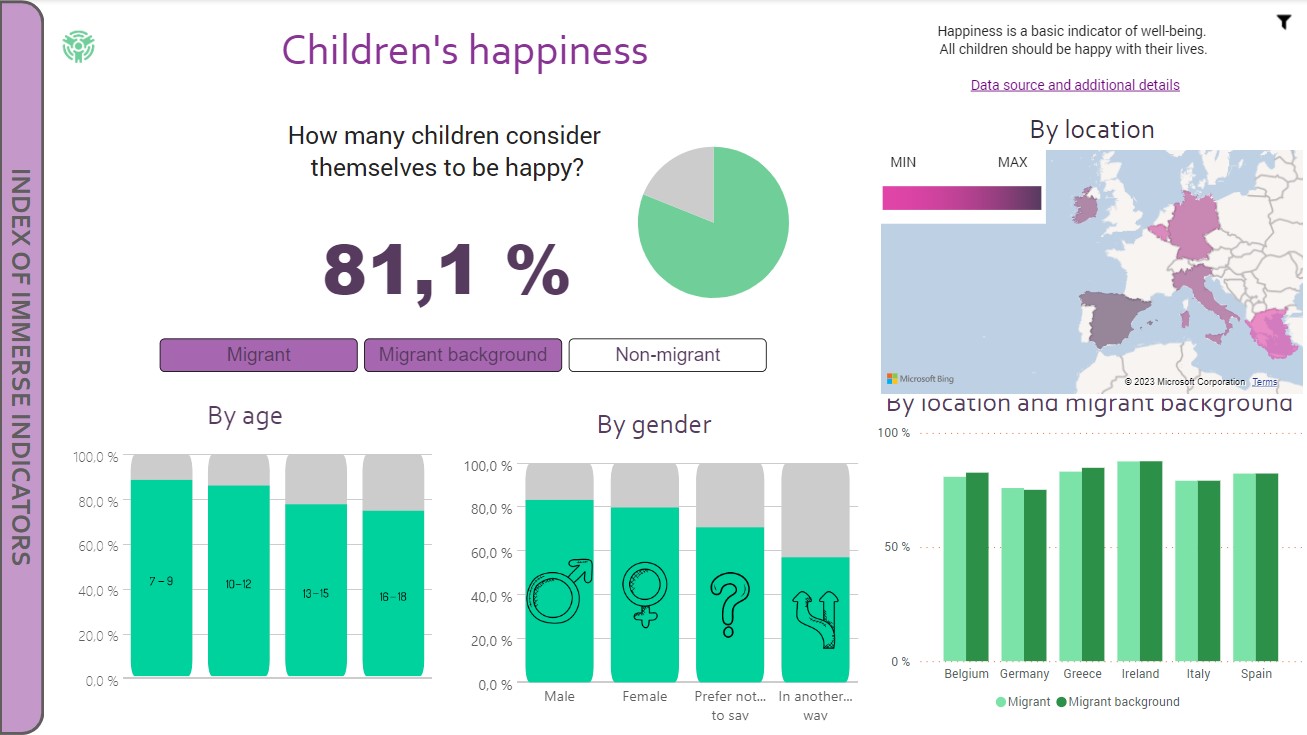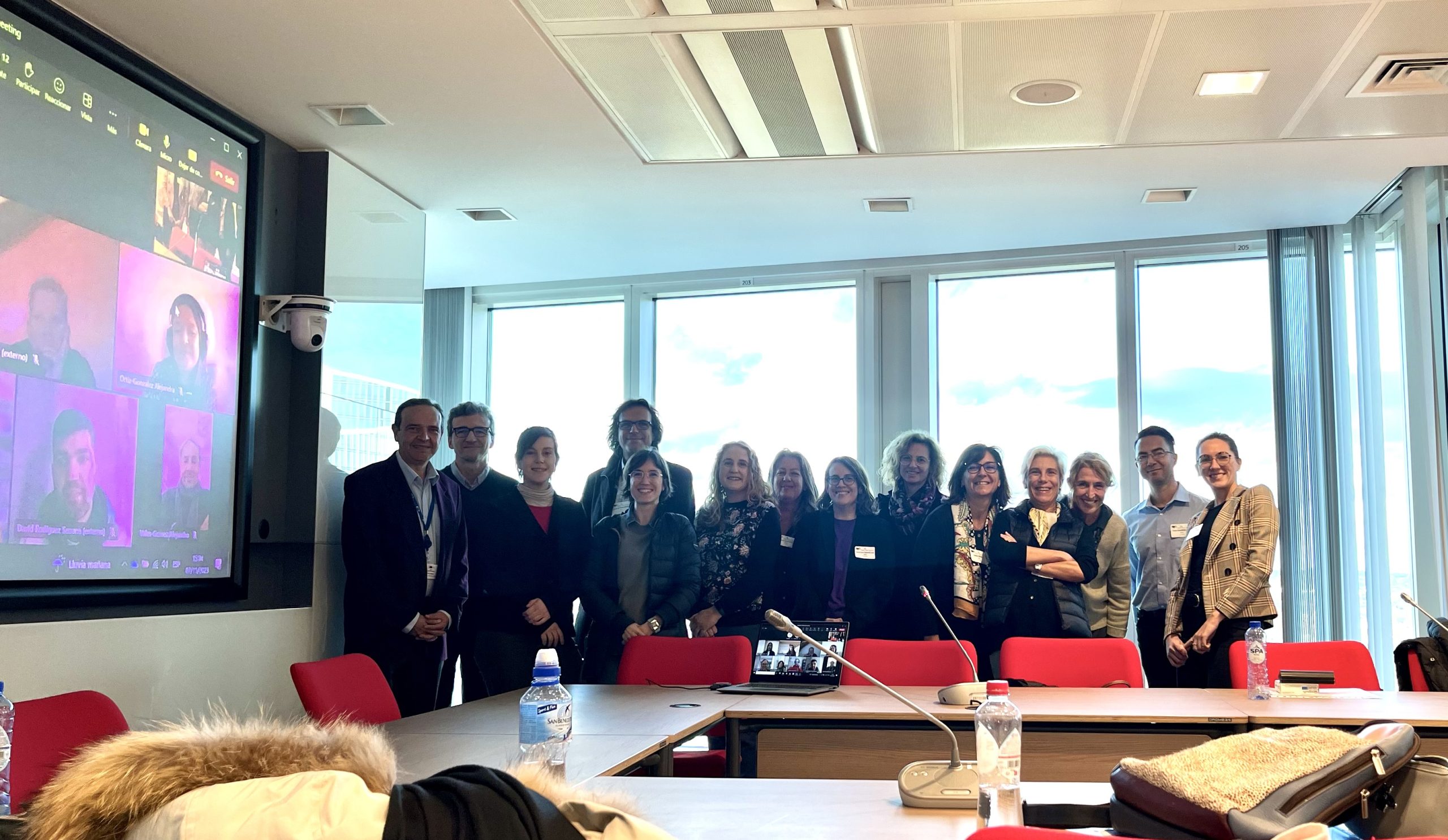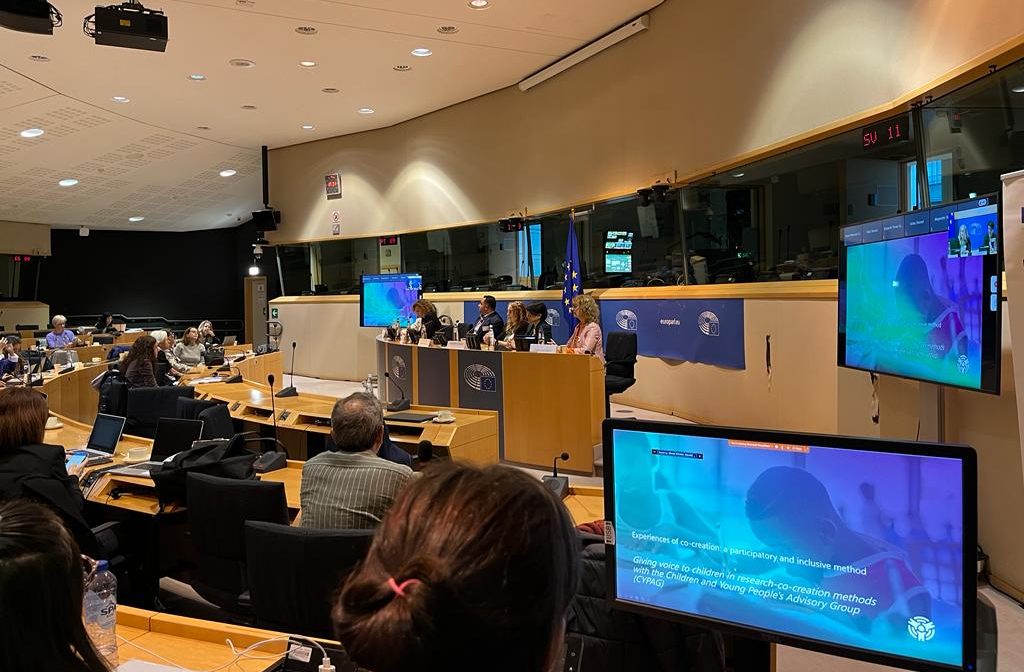Objectives
MAIN OBJECTIVE
IMMERSE aims to enhance the socio-educative inclusion of refugee and migrant children in Europe in order to foster the construction of inclusive and cohesive societies.
IMMERSE main goal is to define a new generation of indicators on the integration and socio-educational inclusion of refugee and migrant children in Europe.
IMMERSE aims to incorporate all relevant stakeholders (children and their families, researchers, NGOs, policymakers, educators or learning institutions) in the co-creation and validation of a dashboard of indicators. This will lead to data that best reflects the particular needs and expectations of the relevant stakeholders.
IMMERSE researchers will collect and monitor data related to the selected indicators from children age 6-18 years old in 6 European countries: Belgium, Germany, Greece, Ireland, Italy and Spain. IMMERSE will develop an innovative and ICT-supported solution to carry out data collection (onboarding platform) and data visualization and analysis (dashboard of indicators).
SPECIFIC OBJECTIVES
- Listen to and include the voices of refugee and migrant children to consider their experiences and design better social and educational integration systems in order to enhance their skills and general welfare.
- Identify the main parameters and indicators affecting migrant children’s socio -educational integration that are key to consider in order to improve refugee and migrant children’s integration and the host society’s preparation.
- Take advantage of current data sources and data analysis systems regarding refugee and migrant children to work towards the improvement and visibility of parameters that challenge and support their successful integration into the host societies.
- Collect and monitor data regarding refugee and migrant children integration in learning environments and migrant reception centres across 6 European countries.
- Support the activity of the EU, its member states, NGOs and other associations that work on refugee and migrant children’s integration by facilitating the access to reliable data and to recommendations and best practises.
- Raise awareness about what integration means for EU and for refugee and migrant children and to demonstrate how schools and other educational and experiential environments can contribute to improving their social integration and to support the development of intercultural societies.
- Encourage policymakers, school and other learning and experiential environments to take action to assure access to integration programmes of refugee and migrant children. children.




